Overview
Insomnia is estimated to effect between 10-30% of American adults, over 60 million people, in a year as either a primary condition or as a symptom of a comorbid disorder. Depression is the most common comorbid condition linked with insomnia. 1,2 Insomnia is
thought to have a bidirectional relationship with depression as well as inflammation. For instance, individuals with insomnia have a ten-time greater risk for depression than individuals with a healthy sleep pattern. Additionally, 75% of individuals with depression report
having insomnia. (1,3)
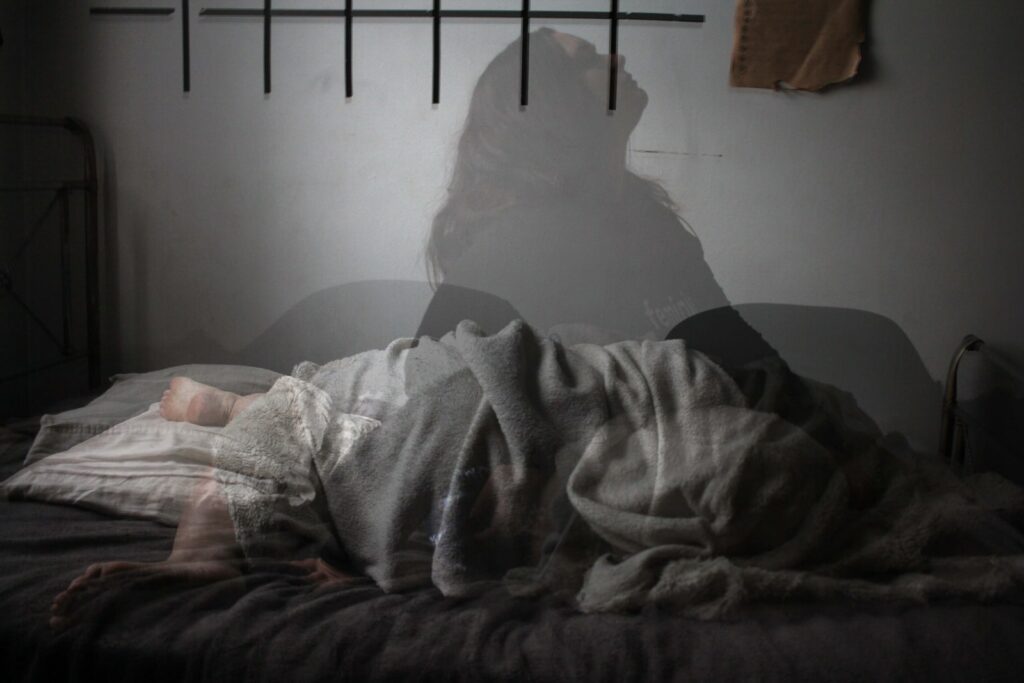
Chronic hyperarousal, including cognitive or emotional processes, is considered the primary cause of insomnia. Hyperarousal has been identified in individuals with insomnia as increased heart rate variability, increased metabolic rate, elevated core body temperature and/or neuroendocrine dysregulation (increased cortisol and decreased melatonin), self-reported “racing-mind”. (1,4)
The etiology of insomnia is complex and highly varied; therefore, gaining an understanding of the sleep pattern disturbance may be helpful. For instance, difficulty falling asleep may relate to poor sleep hygiene (bedroom environment and sleep habits) potentially causing low melatonin production; a racing mind may be an indication of dysregulation of neurotransmitters such as GABA/glutamate or hormones including catecholamines, daytime fatigue with an inability to sleep at night may be more indicative of taxed adrenal health. (5)
As discussed above a bidirectional relationship exists between insomnia and depression and inflammation. One of the common themes among these disorders is their inverse relationship with a healthy diet. In particular, excess intake of refined/simple high glycemic carbohydrates has been associated with an increased risk for developing each of these conditions independently. (1,6)
Therapeutic Food Plan
Although a single dietary plan has not conclusively improved or prevented insomnia, what research does suggest is a healthy diet providing adequate nutrition without overconsumption may provide the best support.
Alcohol
While a small amount of alcohol is unlikely to have a negative impact on sleep for most people, excess intake (3-6 drinks) has been demonstrated to disrupt sleep, likely due to impaired melatonin production by over 40%, as well as interference with the activities of GABA and glutamate, neurotransmitters involved in wake-sleep cycles. 7,8 Although initially alcohol may induce sleep, second half of sleep
disturbances and reduced REM sleep is common with alcohol consumption within 3-4 hours of bedtime. (5,9,10)
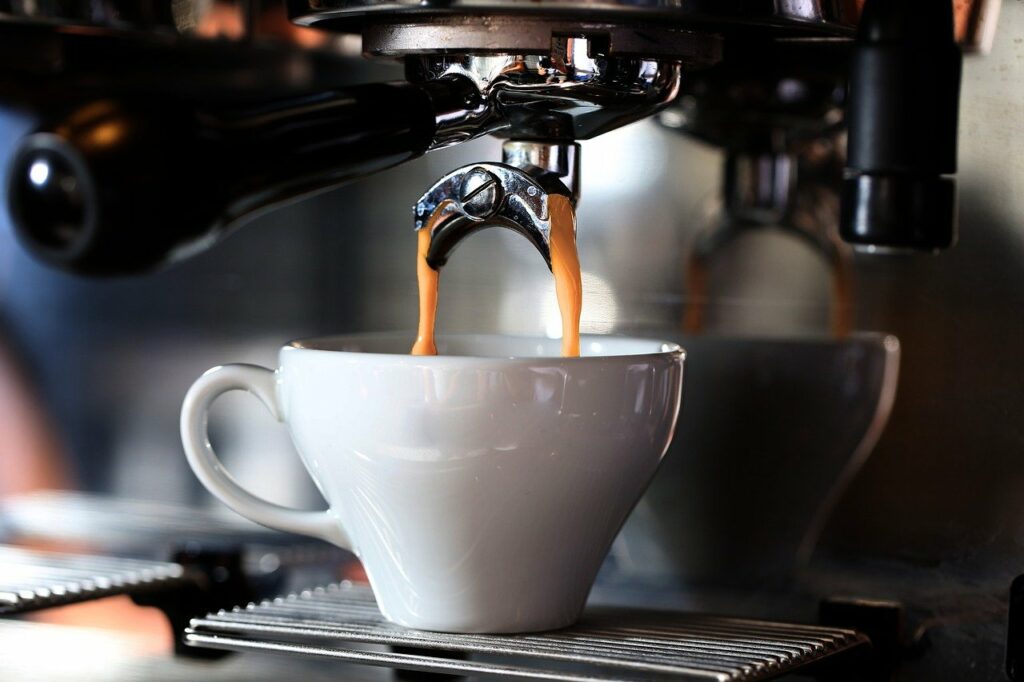
Caffeine
Although the individual reaction to caffeine varies, it’s typically advisable to minimize caffeine intake 3-4 hours before bed to support sleep at bedtime. (5,11) Within the body caffeine is able to block the activity of adenosine, a neuromodulator promoting initiation of sleep. Although serum peak levels of caffeine occur within the first thirty minutes, the half-life of caffeine varies greatly by individual, from 2 to 10 hours. (12)
Anti-inflammatory Diet
An anti-inflammatory dietary, such as the Mediterranean diet, has been recognized as promoting good health overall including sleep quality. A study of just under 2000 individuals reported a lower association of sleep disturbance and poor sleep quality, assessed by the Pittsburgh sleep quality index, among participants with higher intake of dietary anti-inflammatory foods including vegetables, fruits, legumes and foods rich in healthy fats such as salmon, nuts, seeds and olive oil . (13) Several features of a Mediterranean diet are thought to play a role in managing systemic inflammation. In particular, this dietary pattern is high in plant-derived foods which provide an important sources of
antioxidants associated with reduced oxidative stress and neuroprotection. (13) A 2016 cross-over trial involving 27 healthy adults reported a 2.6% increase in slow-wave sleep associated with each 10 gram increase in fiber intake; further, a 7.1% decrease in slow-wave sleep occurred with each 10% increase in saturated fat intake (primarily found in meats and full-fat dairy products). Additionally, higher consumption
of sugar and refined carbohydrates was associated with increased wake time after onset of sleep. (14)
Therapeutic Foods
Kiwi fruit provides an abundant source of antioxidant nutrients in particular vitamin C and vitamin K. Additionally, kiwi contains a high content of serotonin, a precursor important in the production of melatonin supporting sleep. A 4-week study of individuals with insomnia reported consumption of 2 kiwi fruits an hour before bedtime had a 13% improvement in total sleep time, a 5% decreased arousal time
during sleep and a 42% quicker time to fall asleep. (15,16)
Potential Challenge of Food Plan
Many individuals depend on caffeine physically and/or psychologically; caffeine is the most commonly used drug globally. Withdrawal symptoms upon abrupt abstinence from caffeine have been well documented including headache, fatigue, cognitive difficulties and low mood. Tapering caffeine intake instead at progressively lower doses has been reported to suppress these symptoms. (17) Additionally, some individuals report exercise provides a boost of energy supporting fatigue often accompanying caffeine withdraw.
Medication Interaction
Over-the-counter antihistamines, such as Benadryl are commonly used to treat insomnia. Although these medications may help induce sleepiness, sleep quality is poor and residual drowsiness is common. In addition, tolerance to the sedative effect of this medication occurs rapidly. Further, medications such as Benadryl not only block histamine, they block activity of acetylcholine (anticholinergic), associated with cognitive function . (18) Long-term use of anticholinergic medications, such as Benadryl, for more than 3 years has been linked to
significantly increased risk of developing dementia. (19) Use of this medication further increases the importance of an anti-inflammatory diet to support brain health.
Dietary Supplements
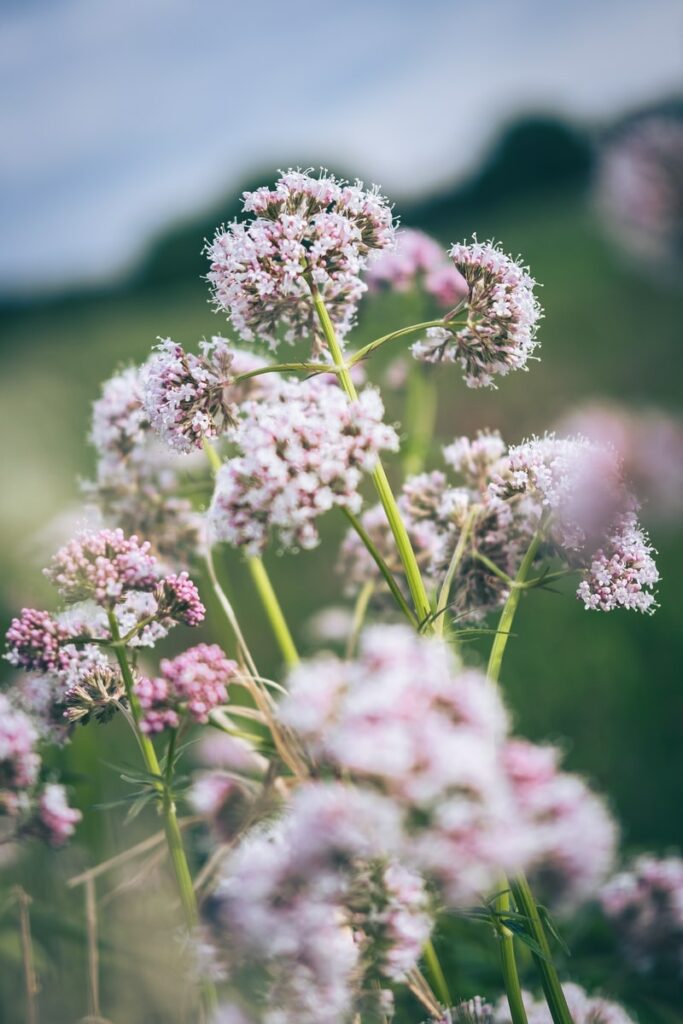
Valerian Root: Valerian has a traditional use as a sleep aid for its sedative and anxiolytic effects by enhancing GABA function. Unlike sedative medications, valerian does not impair cognitive function. (1,20) Common with many herbs, valerian root is often used in a formula with other nervine herbs such as Hops, Passionflower, Chamomile or Skullcap. It should be noted, about 10% of individuals experience an idiosyncratic effect with the use of valerian resulting in over-stimulation as opposed to relaxation. (20)
Dose:
•Tea: 1-2tsp (2-3 grams) root in steeped 8 oz water for about 1 hour (roots require looking steeping
than teas of flowers and leaves); consume 30minutes – 2 hours before bed.
•Tincture: 300-900 mg standardized extract
Interactions: Caution with sedative and anti-depressant medications as may theoretically potentiate effects. (20)
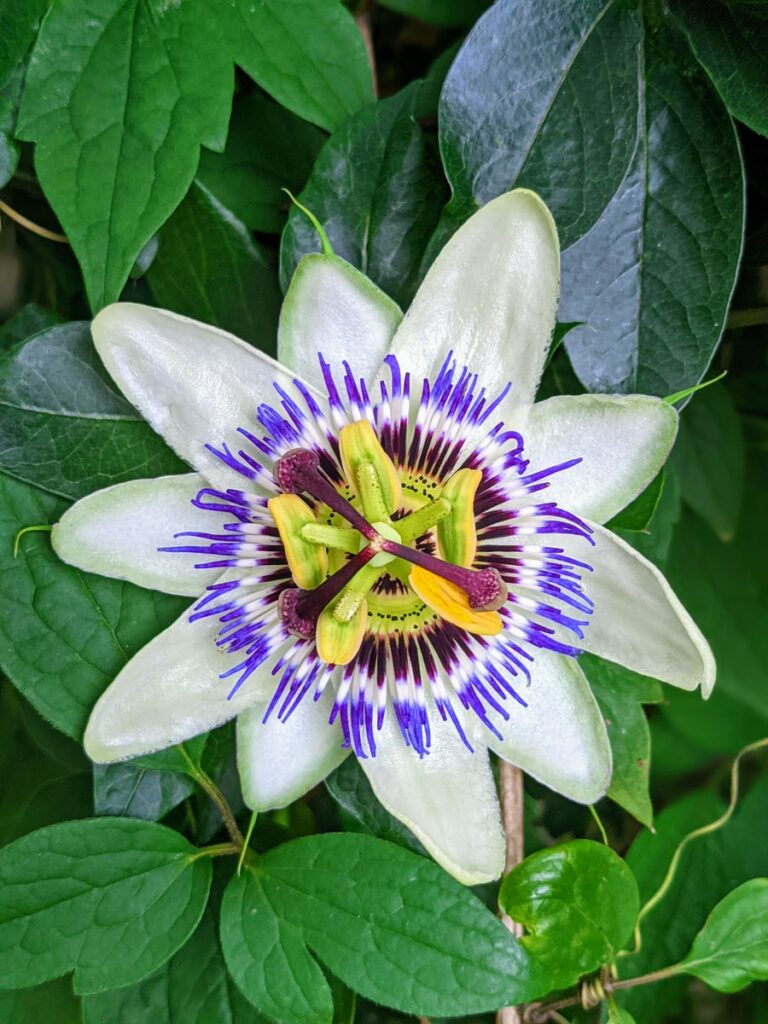
Passionflower (Passiflora):Passionflower has sedating qualities effective for anxiety and insomnia therapy. A study of 110 individuals with insomnia reported participants receiving Passionflower extract for two weeks experienced significantly increased sleep time and improved sleep efficiency (ratio of time in bed to time sleeping) compared to the group receiving placebo. 21 It has often been described as an effective herb for
managing insomnia due to circular thinking or worry.
Dose:
•Tea:1-2 tsp (about 2-3 g)/ cup of water
•Tincture: 1-3ml 3x/day (max 40 ml/ week); pause 2 days off with LT use 22
Interactions: None noted (22)
Healthcare Professional Collaboration
Referral to an acupuncturist can provide assistance to clients with insomnia as demonstrated by a systematic review including 46 randomized trials and over 3800 individuals. This review reported total sleep duration and quality was significantly improved with acupuncture treatment compared to no treatment, medication and sham acupuncture. (23) Acupuncture has also been demonstrated to increase the effectiveness of medication and herbal insomnia treatments. (23)
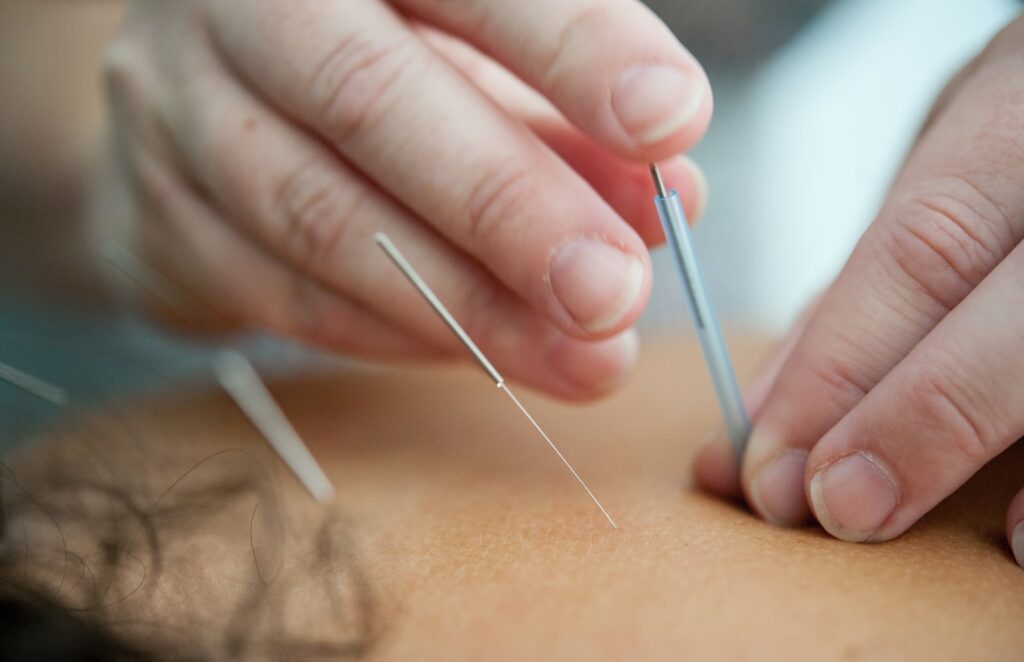
Conclusion
Insufficient sleep can have a significant impact on quality of life and has been associated with increased
risk of developing several chronic conditions including obesity and hypertension. Striving for good sleep
protocols including following a healthy diet as well as establishing a relaxing bedtime routine, such as
minimizing use of electronics near bedtime and maintaining a cool, dark, quiet space for sleep, can go a
long way in promoting a good night’s sleep.
References:
1. Naiman R. Chapter 9: Insomnia. Rakel D. Integrative Medicine. 4 th ed. Elsevier, 2018: 74-85.
2. Mai E, Buysse DJ. Insomnia: Prevalence, Impact, Pathogenesis, Differential Diagnosis, and Evaluation. Sleep
Med Clin. 2008;3(2):167-174. doi:10.1016/j.jsmc.2008.02.001
3. Fang H, Tu S, Sheng J, Shao A. Depression in sleep disturbance: A review on a bidirectional relationship,
mechanisms and treatment. J Cell Mol Med. 2019;23(4):2324-2332. doi:10.1111/jcmm.14170
4. Levenson JC, Kay DB, Buysse DJ. The pathophysiology of insomnia. Chest. 2015;147(4):1179-1192.
doi:10.1378/chest.14-1617
5. Ross, K. Lecture presented: Module 7 Insomnia Lecture. Presented as part of Nutrition Intervention
Systemic Disorders Week 7, MSCN program at SCNM. Viewed February 14, 2022; Online.
6. Gangwisch JE, Hale L, St-Onge MP, et al. High glycemic index and glycemic load diets as risk factors for
insomnia: analyses from the Women’s Health Initiative. Am J Clin Nutr. 2020;111(2):429-439.
doi:10.1093/ajcn/nqz275
7. Ekman AC, Leppäluoto J, Huttunen P, Aranko K, Vakkuri O. Ethanol inhibits melatonin secretion in healthy
volunteers in a dose-dependent randomized double blind cross-over study. J Clin Endocrinol Metab.
1993;77(3):780-783. doi:10.1210/jcem.77.3.8370699
8. Roehrs T, Roth T. Sleep, sleepiness, and alcohol use. Alcohol Res Health. 2001;25(2):101-109.
9. Doherty R, Madigan S, Warrington G, Ellis J. Sleep and Nutrition Interactions: Implications for
Athletes. Nutrients. 2019;11(4):822. Published 2019 Apr 11. doi:10.3390/nu11040822
- Frank S, Gonzalez K, Lee-Ang L, Young MC, Tamez M, Mattei J. Diet and Sleep Physiology: Public Health and
Clinical Implications. Front Neurol. 2017;8:393. Published 2017 Aug 11. doi:10.3389/fneur.2017.00393 - Roehrs T, Roth T. Caffeine: sleep and daytime sleepiness. Sleep Med Rev. 2008;12(2):153-162.
doi:10.1016/j.smrv.2007.07.004 - O’Callaghan F, Muurlink O, Reid N. Effects of caffeine on sleep quality and daytime functioning. Risk Manag
Healthc Policy. 2018;11:263-271. Published 2018 Dec 7. doi:10.2147/RMHP.S156404 - Godos J, Ferri R, Caraci F, et al. Dietary Inflammatory Index and Sleep Quality in Southern Italian
Adults. Nutrients. 2019;11(6):1324. Published 2019 Jun 13. doi:10.3390/nu11061324 - St-Onge MP, Roberts A, Shechter A, Choudhury AR. Fiber and Saturated Fat Are Associated with Sleep
Arousals and Slow Wave Sleep. J Clin Sleep Med. 2016;12(1):19-24. doi:10.5664/jcsm.5384 - Peuhkuri K, Sihvola N, Korpela R. Diet promotes sleep duration and quality. Nutr Res. 2012;32(5):309-319.
doi:10.1016/j.nutres.2012.03.009 - Lin HH, Tsai PS, Fang SC, Liu JF. Effect of kiwifruit consumption on sleep quality in adults with sleep
problems. Asia Pac J Clin Nutr 2011;20:169–74. - Meredith SE, Juliano LM, Hughes JR, Griffiths RR. Caffeine Use Disorder: A Comprehensive Review and
Research Agenda. J Caffeine Res. 2013;3(3):114-130. doi:10.1089/jcr.2013.0016 - Lie JD, Tu KN, Shen DD, Wong BM. Pharmacological Treatment of Insomnia. P T. 2015;40(11):759-771.
- Gray SL, Anderson ML, Dublin S, et al. Cumulative Use of Strong Anticholinergics and Incident Dementia: A
Prospective Cohort Study. JAMA Intern Med. 2015;175(3):401–407. doi:10.1001/jamainternmed.2014.7663 - Valeriana officinalis. The Naturopathic Herbalist. https://thenaturopathicherbalist.com/2015/09/14/valeriana-officinalis/.
Updated September 14, 2005. Accessed February 15, 2022. - Lee J, Jung HY, Lee SI, Choi JH, Kim SG. Effects of Passiflora incarnata Linnaeus on polysomnographic sleep
parameters in subjects with insomnia disorder: a double-blind randomized placebo-controlled study. Int
Clin Psychopharmacol. 2020;35(1):29-35. doi:10.1097/YIC.0000000000000291 - Passiflora incarnata. The Naturopathic Herbalist.
https://thenaturopathicherbalist.com/2015/09/13/passiflora-incarnata/. Updated September 13, 2005.
Accessed February 15, 2022. - Cao H, Pan X, Li H, Liu J. Acupuncture for treatment of insomnia: a systematic review of randomized
controlled trials. J Altern Complement Med. 2009;15(11):1171-1186. doi:10.1089/acm.2009.0041
